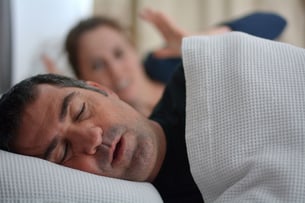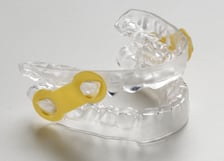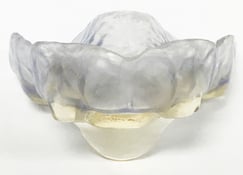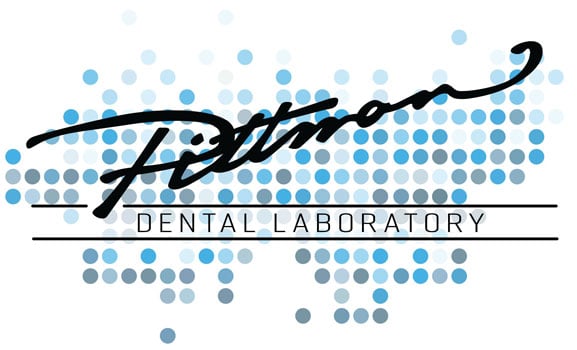 Sleep apnea is a prevalent sleep disorder affecting millions of people worldwide, and its consequences can be severe, from chronic fatigue to cardiovascular problems. While Continuous Positive Airway Pressure (CPAP) machines have been the go-to solution for years, not everyone finds them comfortable or effective. This is where dental appliances come into play, offering a lifeline to both patients and dentists looking to expand their services and generate more income.
Sleep apnea is a prevalent sleep disorder affecting millions of people worldwide, and its consequences can be severe, from chronic fatigue to cardiovascular problems. While Continuous Positive Airway Pressure (CPAP) machines have been the go-to solution for years, not everyone finds them comfortable or effective. This is where dental appliances come into play, offering a lifeline to both patients and dentists looking to expand their services and generate more income.
Understanding Sleep Apnea:
Before diving into dental appliances, let's briefly understand sleep apnea. It is characterized by interrupted breathing during sleep due to blocked airways. There are two primary types: obstructive sleep apnea (OSA) and central sleep apnea. OSA, the most common type, occurs when throat muscles relax excessively, causing airway obstruction.
The Role of Dental Appliances:
Dental appliances, also known as mandibular advancement devices (MADs) or mandibular repositioning devices (MRDs), have gained recognition as a comfortable and effective alternative for treating mild to moderate OSA. These devices work by repositioning the lower jaw and tongue, which helps to keep the airway open during sleep.
Why Dentists Should Offer Dental Appliances:
1. Diversify Services: By incorporating dental appliances into their practice, dentists can diversify their services, attracting a broader range of patients. This expanded offering can be a valuable source of additional income.
2. Patient-Centered Approach: Many patients with sleep apnea are hesitant to use CPAP machines due to their bulkiness and noise. Dental appliances offer a more patient-friendly solution, increasing compliance and patient satisfaction.
3. Collaboration Opportunities: Dentists can collaborate with sleep specialists and physicians to create a holistic approach to treating sleep apnea. This collaboration can enhance patient care and referrals.
4. Long-Term Patient Relationships: Offering sleep apnea treatment through dental appliances fosters long-term relationships with patients who may require ongoing care, including appliance adjustments and replacements.
Steps for Dentists to Get Started:
1. Training: Dentists should seek training and certification in dental sleep medicine to ensure they can provide the best care to their patients.
2. Patient Screening: Implement a screening process to identify potential sleep apnea patients during regular dental check-ups.
3. Customized Appliances: Work closely with patients to design and create customized dental appliances tailored to their specific needs.
4. Collaboration: Establish relationships with sleep specialists and physicians to build a network for referrals and comprehensive care.
In conclusion, dental appliances are a valuable addition to any dental practice. They provide an effective, patient-centered solution for sleep apnea while also offering dentists the opportunity to expand their services and generate additional income. Pittman Dental Laboratory offers several sleep apnea appliances for your patients:
 DEMA - EMA Splint - The EMA splint is an FDA approved appliance for treatment of snoring and mild to moderate sleep apnea, and cases where CPAP has not been tolerated. This appliance increases airway space by advancing the mandible using interchangeable elastic straps.
DEMA - EMA Splint - The EMA splint is an FDA approved appliance for treatment of snoring and mild to moderate sleep apnea, and cases where CPAP has not been tolerated. This appliance increases airway space by advancing the mandible using interchangeable elastic straps. DSA - Pro-Form Anti -Snoring Splint - The anti-snoring appliance protrudes the lower jaw forward to increase the pharyngeal airway opening. The device prevents the mandible from rotating open beyond the normal freeway space with the jaw protruding forward, the base of the tongue is lifted forward so that the airway passages remain open during sleep.
DSA - Pro-Form Anti -Snoring Splint - The anti-snoring appliance protrudes the lower jaw forward to increase the pharyngeal airway opening. The device prevents the mandible from rotating open beyond the normal freeway space with the jaw protruding forward, the base of the tongue is lifted forward so that the airway passages remain open during sleep.
